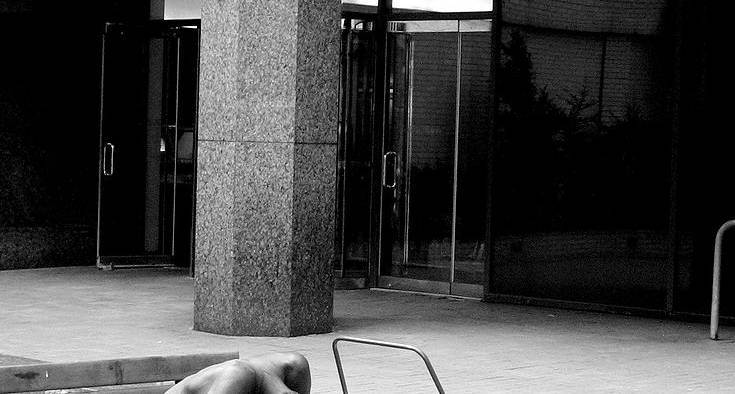Coronavirus: New York Won’t Close Schools Because Homeless Kids Have Nowhere Else to Go

For many thousands of students across New York City and the United States, school is the only place they receive regular meals, shelter, medical care, and other vital services.
(By: Alan Macleod, Mintpress News) As the number of cases of COVID-19 in the tri-state area rises to over 150, Governor Andrew Cuomo has declared a state of emergency across New York State. Local universities like Hofstra, Columbia and Yeshiva have shut their doors on students today. But the city has no plans to close public k-12 schools – because tens of thousands of homeless children have nowhere else to go. 34,000 children in New York City’s public school system currently live in emergency shelters, and a further 74,000 have only been spared the same fate by relatives, friends or neighbors who have taken them in. With 1.1 million students, the city has the largest public school system in the United States, one in ten of whom experienced homelessness in the 2018-2019 school year, according to a recent report from education group Advocates for Children. Thus, for many thousands of students, school is the only place they receive regular meals, shelter, medical care, and other vital services. For that reason, School Chancellor Richard A. Carranza said that they would remain open despite the risk and that closures would be considered only as a “last resort.”
Homelessness among young people has reached epidemic proportions nationwide. Federal data shows that more than 1.5 million students across America experienced homelessness during the 2017-2018 year, with California atop the table. And yet the problem has become normalized to the point where children in the richest society in world history living on the streets are unremarkable. In a story about homeless New York child chess prodigy Tanitoluwa Adewumi, the New York Times and other media outlets described his playing style and his personal brilliance but did not ponder how he came to be homeless or what that said about the society he lived in. The problem is particularly acute in the Bronx, where 37 percent of residents also often go to bed hungry, the highest rate in the entire country.
While Columbia University intends on teaching classes remotely from Wednesday on, schoolteachers in poorer boroughs note that it is impossible to do the same, as up to half of the students do not have Internet access at home. “We can’t do distance learning,” said Nicole Manning, a ninth-grade math teacher at Herbert H. Lehman High School in the Bronx, “It wouldn’t be fair.”
Y’all the NY school system won’t shut down because over 100,000 students are homeless and will not get a meal otherwise. The US is the dystopia they imagine everywhere else being.
— Laleh Khalili (@LalehKhalili) March 9, 2020
Other responses to the coronavirus have raised eyebrows. If the outbreak reaches pandemic proportions, the city has made plans to make prisoners from the notorious Rikers Island jail dig mass graves for victims on Hart Island, a policy first proposed by Michael Bloomberg when he was mayor. And amid a run on the product, inmates in prison factories have also began producing large quantities of hand sanitizer for public use. This weekend a Manhattan hardware store was fined for hiking prices on cleaning products. Meanwhile, banking lobbying groups are pressuring the government to force through emergency deregulation of Wall Street, supposedly to help fight the virus.
It appears that the subway will be kept open at almost all costs, too. The confined space filled by 4.3 million people every day could pose a serious contagion threat, but it is also a crucial artery of the city. Mayor Bill de Blasio has suggested using alternative means of transport, if possible. “If you take the subway and you are able to wait for a less packed train, please do. If you have the option of walking or biking, please do. Buses can be crowded too, but less than subways, so please use these if you can,” he advised.
There has also been an epidemic of anti-Asian xenophobia on the subway. The New York Police Department is investigating a hate crime after a Chinese woman was attacked last month. Thai and Hmong communities have also been the target of racist abuse.
The NYPD and the Hate Crime Task Force encourage the victim to report this incident to the police for a full investigation. https://t.co/4Qb4XHVj3Z
— NYPD Hate Crimes (@NYPDHateCrimes) February 5, 2020
From the inadequate public health provisions, the wave of intolerance to the shocking levels of homelessness, the coronavirus is exposing many of the flaws of and the dark undertones of American society. Without a functioning social safety net, the United States will find it harder than other nations to combat the virus’ spread.
Alan MacLeod is a Staff Writer for MintPress News. After completing his PhD in 2017 he published two books: Bad News From Venezuela: Twenty Years of Fake News and Misreporting and Propaganda in the Information Age: Still Manufacturing Consent. He has also contributed to Fairness and Accuracy in Reporting, The Guardian, Salon, The Grayzone, Jacobin Magazine, Common Dreams the American Herald Tribune and The Canary.
















In a humane society, homelessness should be illegal. People found to be homeless should be detained, examined and evaluated. The government should rightly undertake the rehabilitation of those persons capable of re-entering normal life as self-supporting citizens. Those inherently less capable, for whatever reason, should be assigned as appropriate to sheltered work of which they are capable, or placed in perpetual care. Equitable taxation would fund this humane treatment. In the richest country on earth, sporting multi-billionaires, people sleeping in alleyways, or on sidewalk gratings across from the U.N. building, is unconscionable.